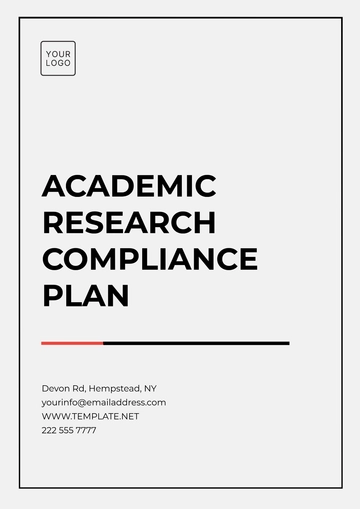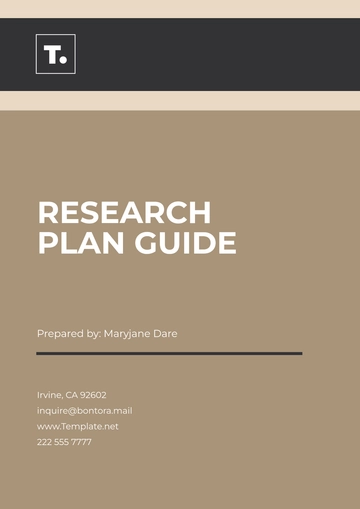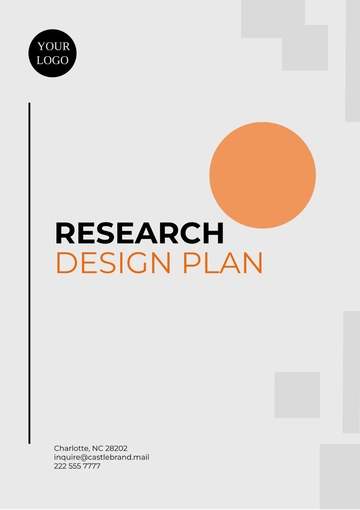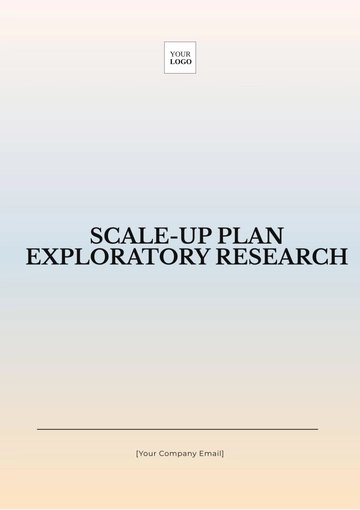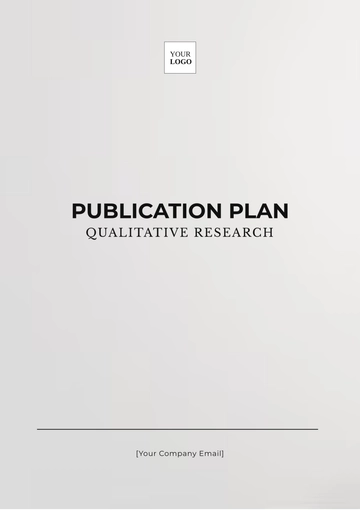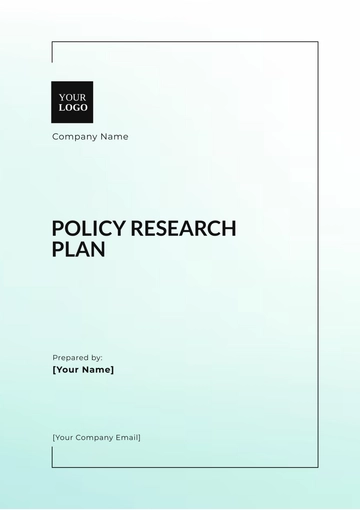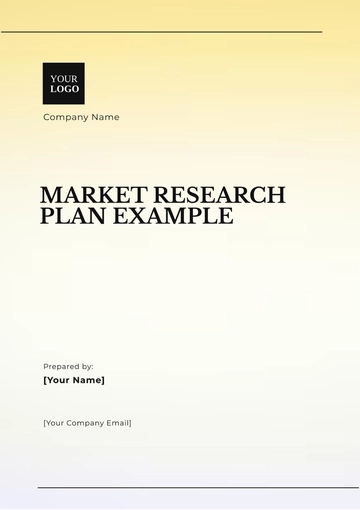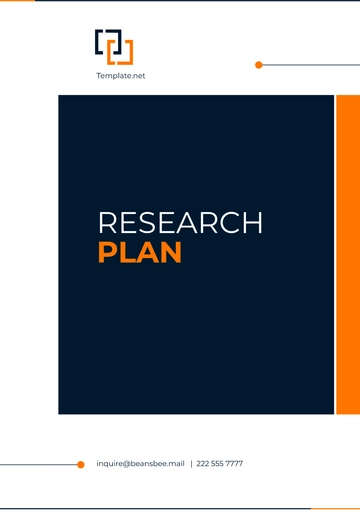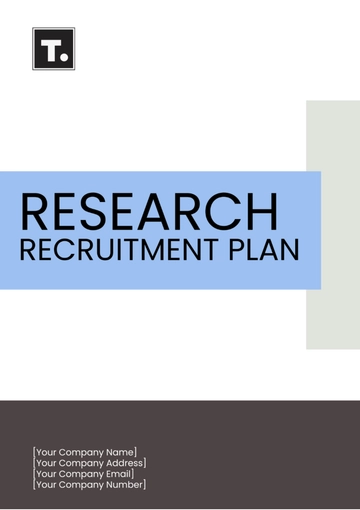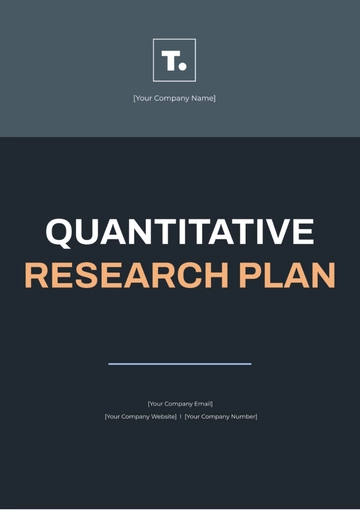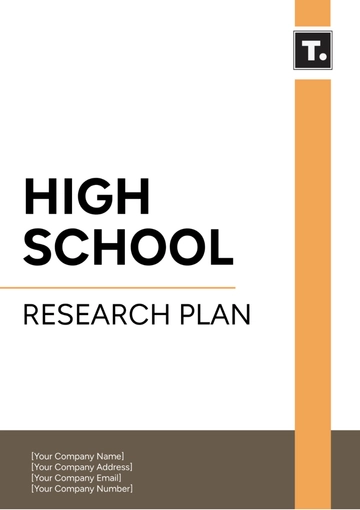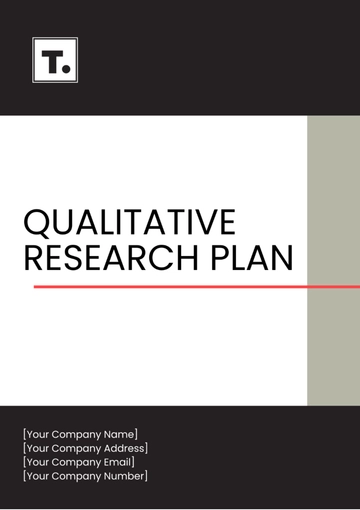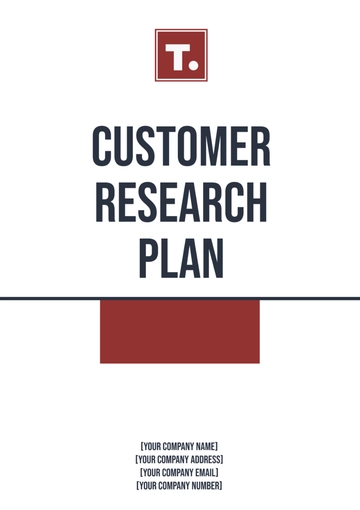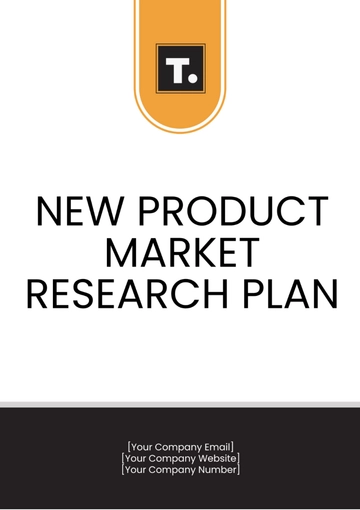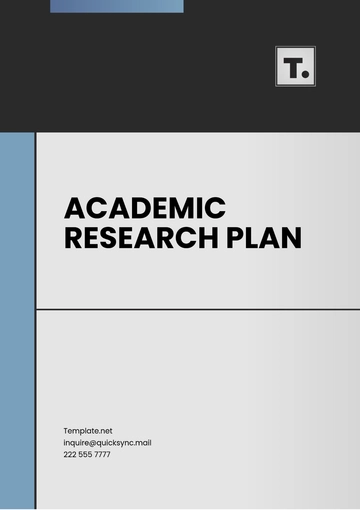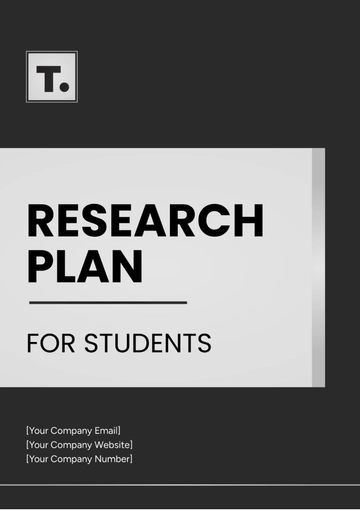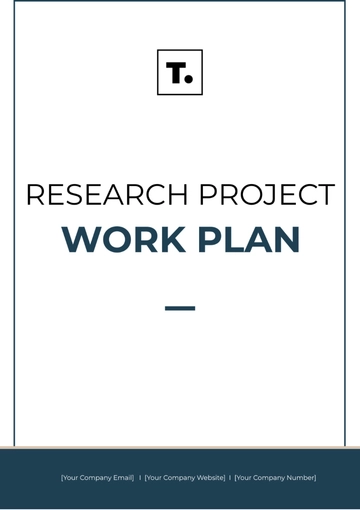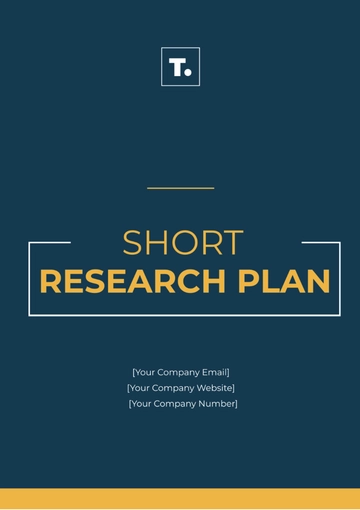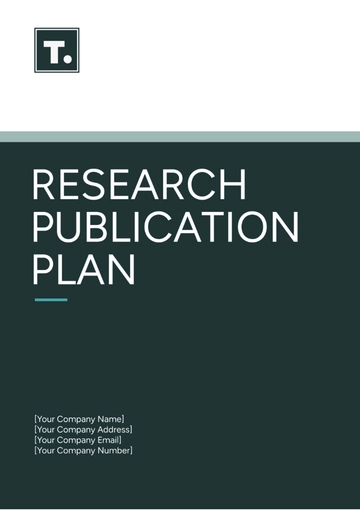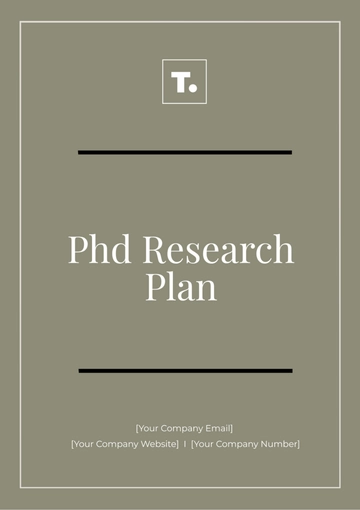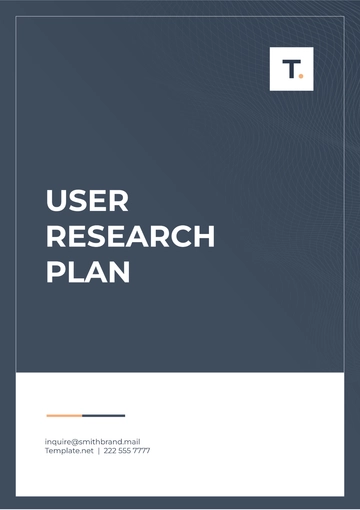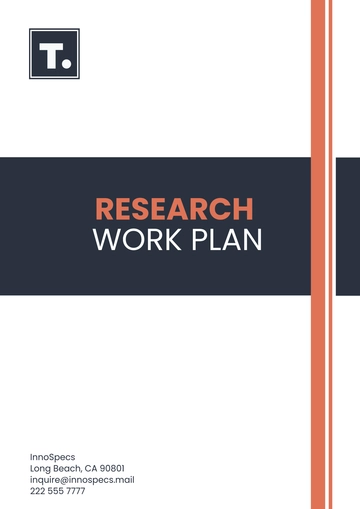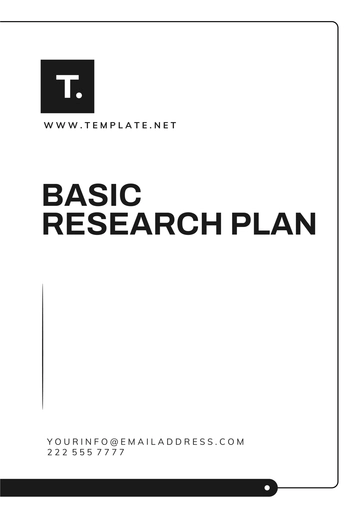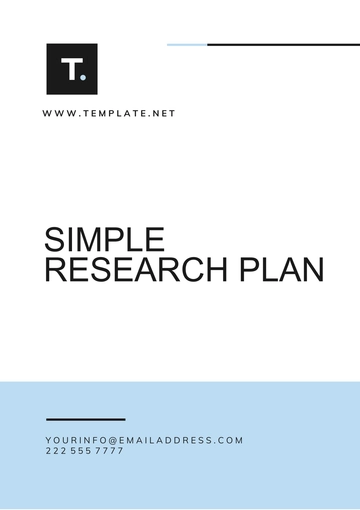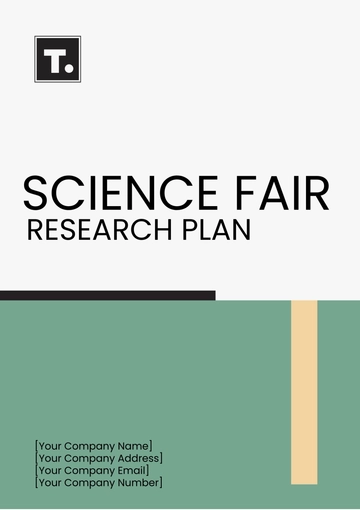Free Academic Research Plan
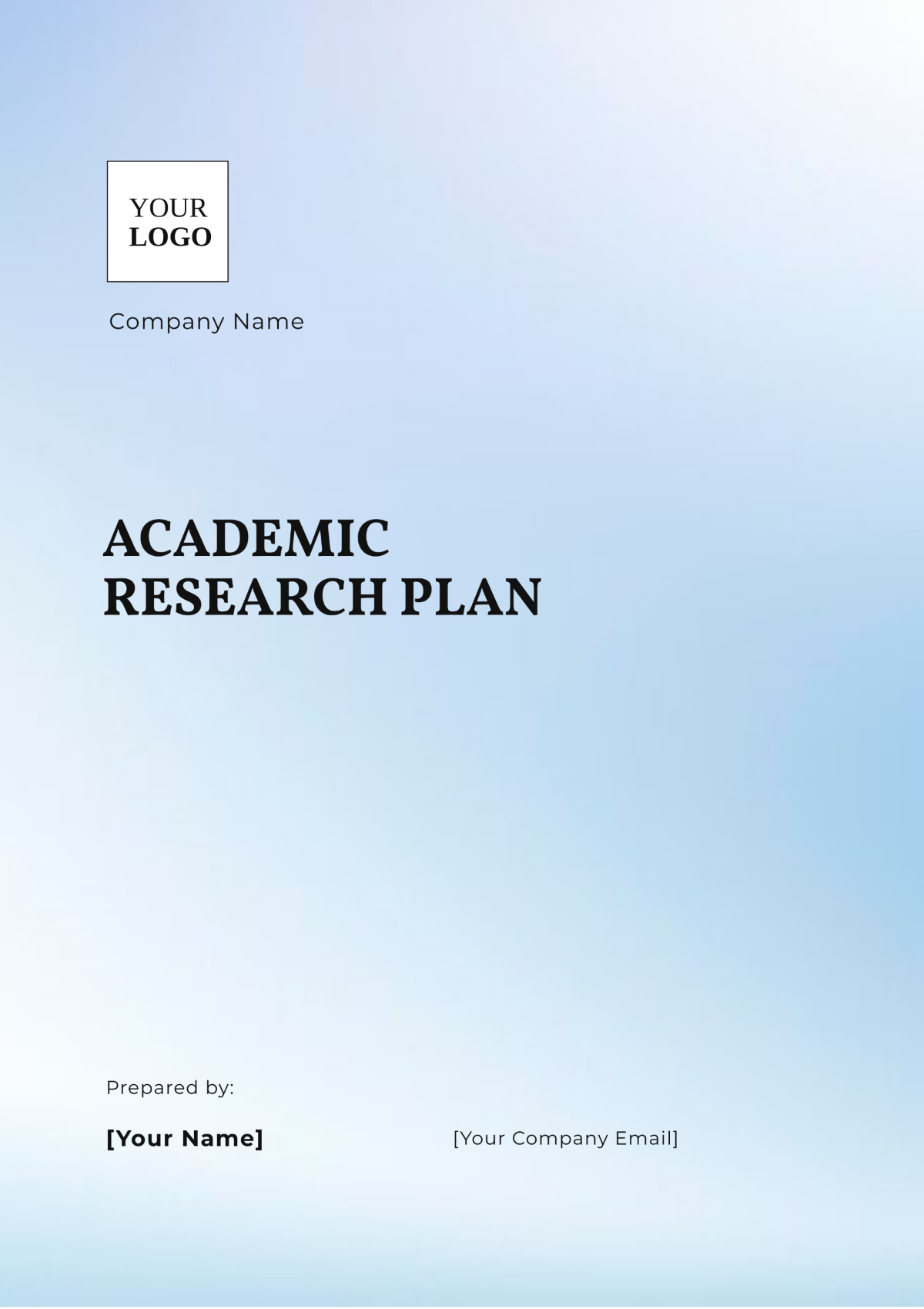
Introduction
This Academic Research Plan outlines a proposal for initiating a new study within [YOUR COMPANY NAME]. The plan details the research objectives, methodologies, timeline, and resources required to investigate innovative approaches in renewable energy technologies. The goal is to develop a comprehensive understanding and propose advancements in this crucial field.
Research Plan
Research Title: Exploring Innovative Approaches in Renewable Energy Technologies
Researcher: [YOUR NAME]
Institution/Company: [YOUR COMPANY NAME]
Purpose
The primary aim of this research is to explore and evaluate emerging methods and technologies in renewable energy. The study seeks to address critical gaps in the current understanding and propose new strategies to enhance the efficiency and sustainability of renewable energy systems.
Research Objectives
To Explore Current Trends: Assess the latest advancements and trends in renewable energy technologies by reviewing recent literature and industry reports.
To Analyze Existing Methods: Conduct a thorough analysis of current renewable energy methods and their effectiveness in addressing key challenges such as energy efficiency and cost.
To Propose New Approaches: Develop and test innovative approaches and technologies that can improve the performance and adoption of renewable energy systems.
Methodology
Research Design:
The study will utilize a mixed-methods approach, integrating both qualitative and quantitative research techniques to gain a comprehensive understanding of the research problem.
Data Collection Methods:
Surveys: Distribute surveys to industry professionals and stakeholders to gather quantitative data on current practices and challenges in renewable energy.
Interviews: Conduct in-depth interviews with experts and practitioners to obtain qualitative insights into emerging technologies and their potential impacts.
Case Studies: Analyze case studies of successful and unsuccessful renewable energy projects to identify best practices and lessons learned.
Data Analysis:
Statistical Analysis: Employ statistical methods to analyze survey data, including descriptive statistics to summarize trends and inferential statistics to identify significant patterns.
Thematic Analysis: Apply thematic analysis to interview transcripts and case study reports to extract key themes and insights.
Comparative Analysis: Compare the findings with existing literature to evaluate the relevance and potential impact of proposed new approaches.
Timeline
Milestone | Description | Completion Date |
|---|---|---|
Literature Review | Review of recent research and industry reports | March 01, 2050 |
Data Collection | Surveys, interviews, and data collection | June 01, 2050 |
Data Analysis | Statistical and thematic analysis | September 01, 2050 |
Report Writing | Drafting and revising the research report | November 01, 2050 |
Project Completion | Finalizing the research report | December 01, 2050 |
Resources Required
Resource Type | Details |
|---|---|
Funding |
|
Equipment |
|
Personnel |
|
Literature Review
A thorough review of existing literature will be conducted to provide a solid foundation for the proposed research. Key studies include:
Smith, J. (2045). Innovations in Renewable Energy Technologies: A Review. Journal of Sustainable Energy, 45(2), 123-145.
Doe, A., & Johnson, L. (2048). Challenges and Opportunities in Renewable Energy. International Conference on Clean Energy, pp. 78-90.
Brown, C. (2049). Case Studies in Renewable Energy Projects: Lessons Learned. Research Papers in Energy Studies, 22(4), 234-250.
This review will highlight the current state of research, identify key gaps, and provide a basis for developing innovative approaches.
Contact Information
Researcher: [YOUR NAME]
Email: [YOUR EMAIL]
Company Name: [YOUR COMPANY NAME]
Company Number: [YOUR COMPANY NUMBER]
Company Address: [YOUR COMPANY ADDRESS]
- 100% Customizable, free editor
- Access 1 Million+ Templates, photo’s & graphics
- Download or share as a template
- Click and replace photos, graphics, text, backgrounds
- Resize, crop, AI write & more
- Access advanced editor
Optimize your research with our Academic Research Plan Template. Available on Template.net, this customizable and editable template is designed to meet your academic needs. The included AI Editor Tool ensures easy adjustments and efficient planning. Whether for project proposals or in-depth studies, this template offers a robust structure to support your research objectives.
You may also like
- Finance Plan
- Construction Plan
- Sales Plan
- Development Plan
- Career Plan
- Budget Plan
- HR Plan
- Education Plan
- Transition Plan
- Work Plan
- Training Plan
- Communication Plan
- Operation Plan
- Health And Safety Plan
- Strategy Plan
- Professional Development Plan
- Advertising Plan
- Risk Management Plan
- Restaurant Plan
- School Plan
- Nursing Home Patient Care Plan
- Nursing Care Plan
- Plan Event
- Startup Plan
- Social Media Plan
- Staffing Plan
- Annual Plan
- Content Plan
- Payment Plan
- Implementation Plan
- Hotel Plan
- Workout Plan
- Accounting Plan
- Campaign Plan
- Essay Plan
- 30 60 90 Day Plan
- Research Plan
- Recruitment Plan
- 90 Day Plan
- Quarterly Plan
- Emergency Plan
- 5 Year Plan
- Gym Plan
- Personal Plan
- IT and Software Plan
- Treatment Plan
- Real Estate Plan
- Law Firm Plan
- Healthcare Plan
- Improvement Plan
- Media Plan
- 5 Year Business Plan
- Learning Plan
- Marketing Campaign Plan
- Travel Agency Plan
- Cleaning Services Plan
- Interior Design Plan
- Performance Plan
- PR Plan
- Birth Plan
- Life Plan
- SEO Plan
- Disaster Recovery Plan
- Continuity Plan
- Launch Plan
- Legal Plan
- Behavior Plan
- Performance Improvement Plan
- Salon Plan
- Security Plan
- Security Management Plan
- Employee Development Plan
- Quality Plan
- Service Improvement Plan
- Growth Plan
- Incident Response Plan
- Basketball Plan
- Emergency Action Plan
- Product Launch Plan
- Spa Plan
- Employee Training Plan
- Data Analysis Plan
- Employee Action Plan
- Territory Plan
- Audit Plan
- Classroom Plan
- Activity Plan
- Parenting Plan
- Care Plan
- Project Execution Plan
- Exercise Plan
- Internship Plan
- Software Development Plan
- Continuous Improvement Plan
- Leave Plan
- 90 Day Sales Plan
- Advertising Agency Plan
- Employee Transition Plan
- Smart Action Plan
- Workplace Safety Plan
- Behavior Change Plan
- Contingency Plan
- Continuity of Operations Plan
- Health Plan
- Quality Control Plan
- Self Plan
- Sports Development Plan
- Change Management Plan
- Ecommerce Plan
- Personal Financial Plan
- Process Improvement Plan
- 30-60-90 Day Sales Plan
- Crisis Management Plan
- Engagement Plan
- Execution Plan
- Pandemic Plan
- Quality Assurance Plan
- Service Continuity Plan
- Agile Project Plan
- Fundraising Plan
- Job Transition Plan
- Asset Maintenance Plan
- Maintenance Plan
- Software Test Plan
- Staff Training and Development Plan
- 3 Year Plan
- Brand Activation Plan
- Release Plan
- Resource Plan
- Risk Mitigation Plan
- Teacher Plan
- 30 60 90 Day Plan for New Manager
- Food Safety Plan
- Food Truck Plan
- Hiring Plan
- Quality Management Plan
- Wellness Plan
- Behavior Intervention Plan
- Bonus Plan
- Investment Plan
- Maternity Leave Plan
- Pandemic Response Plan
- Succession Planning
- Coaching Plan
- Configuration Management Plan
- Remote Work Plan
- Self Care Plan
- Teaching Plan
- 100-Day Plan
- HACCP Plan
- Student Plan
- Sustainability Plan
- 30 60 90 Day Plan for Interview
- Access Plan
- Site Specific Safety Plan
